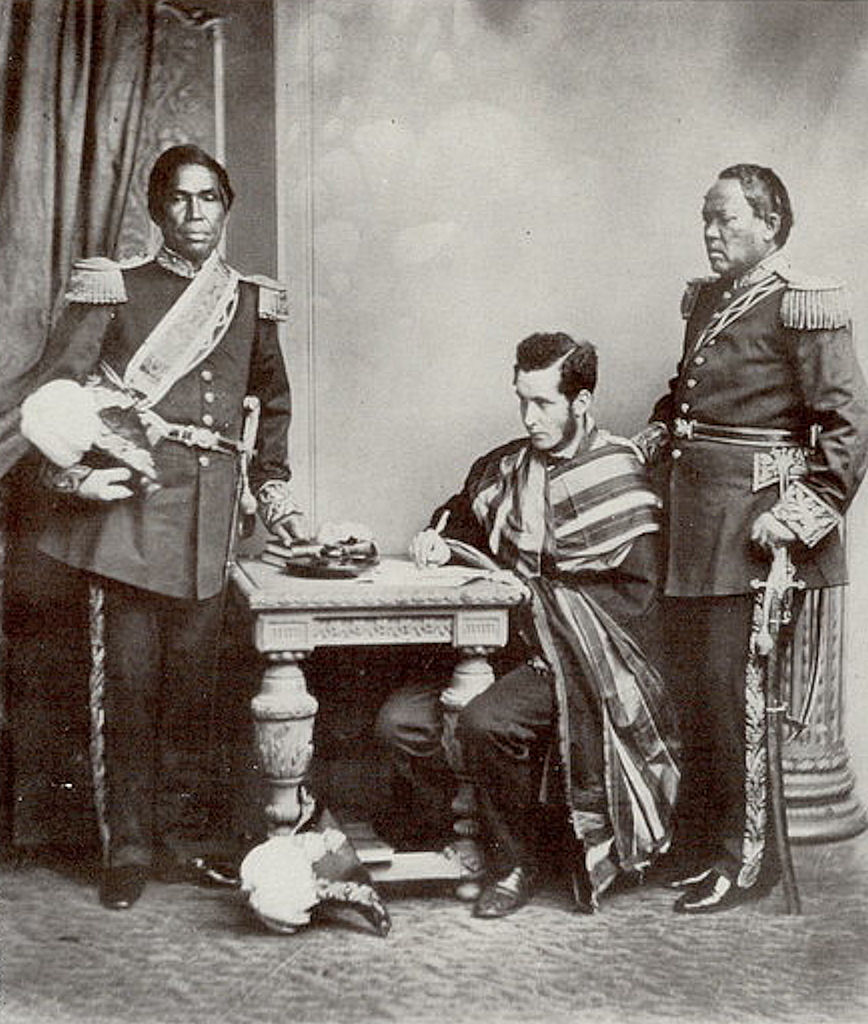Vaša košarica je trenutno prazna!
The history of 19th-century colonialism is rife with thinly veiled pretexts for conquest, and the French invasion of Madagascar is a striking example. While the ultimate goal was control over the resource-rich island, a seemingly innocuous letter, allegedly from a Malagasy prince, played a crucial role in providing France with a convenient justification for military intervention. This obscure piece of correspondence, combined with long-standing economic grievances and strategic ambitions, fueled the Franco-Hova Wars, leading to Madagascar’s eventual colonization.
The Prince’s Letter: A Dubious Justification
The story begins in 1854 with Prince Rakoto (who would later become King Radama II), then the son of Queen Ranavalona I, who ruled the Merina Kingdom in Madagascar. Under the influence of French nationals residing in the capital, Antananarivo, a letter was supposedly dictated and signed by Prince Rakoto, addressed to Napoleon III, Emperor of France. This letter, which allegedly requested French military assistance to depose his mother and establish closer ties, became a central pillar of France’s future claims. The authenticity and the true intent behind this letter remain highly disputed by historians; some allege it was largely a fabrication or heavily influenced by French agents like Jean Laborde, particularly since Radama II was not known to write in French. Regardless of its true origin, the French government strategically utilized this letter as a powerful pretext for future invasion of Madagascar.
Economic Grievances and the Lambert Charter
Beyond the controversial letter, France harbored significant economic interests and grievances. In 1855, Prince Rakoto further signed the Lambert Charter with French adventurer Joseph-François Lambert. This highly lucrative document granted Lambert vast economic privileges, including exclusive rights to mining, forestry, and the exploitation of unoccupied land across the island, in exchange for a modest fee to the Merina monarchy. Upon Radama II’s brief ascension to the throne and his subsequent assassination in 1863, the Merina monarchy, under Queen Ranavalona II and Prime Minister Rainilaiarivony, revoked the terms of the Lambert Charter. They argued that the agreement was void as Malagasy territory belonged to the Crown and the prince had no right to grant such concessions without the sovereign’s consent. The non-respect of this charter, alongside the dubious letter, provided France with another potent excuse to press its claims and ultimately resort to military action.
The Franco-Hova Wars: From Pretext to Conquest
The perceived violation of the Lambert Charter and the convenient existence of the letter to Napoleon III became the official pretexts for France’s military interventions, culminating in the First Franco-Hova War (1883-1885). France demanded recognition of its rights in northeastern Madagascar, a protectorate over the Sakalava people, and a substantial indemnity. When these demands were refused, French forces began bombardments and occupations of coastal towns like Toamasina. Although the first war ended in a treaty that France interpreted as establishing a protectorate over Malagasy foreign relations, the Merina monarchy vehemently denied this interpretation, leading to continued tensions. This unresolved conflict ultimately paved the way for the Second Madagascar Expedition in 1895, a larger, more decisive invasion that resulted in the complete overthrow of the Merina Kingdom and the formal declaration of Madagascar as a French colony in 1896.
A Legacy of Imperialism and Enduring Myth
The story of the letter, the Lambert Charter, and the subsequent Franco-Hova Wars serves as a stark illustration of 19th-century European imperialism. While the letter itself might have been a minor, even fabricated, detail, it was expertly manipulated by French authorities to justify an invasion driven by strategic ambitions and economic desires for a pivotal Indian Ocean territory. The incident underscores how seemingly small diplomatic tools or individual actions could be amplified and exploited to serve grand colonial designs. The myth of a desperate prince’s plea to a foreign emperor continues to highlight the complex interplay of power, deception, and national interest in the scramble for global dominance during the age of empire.

